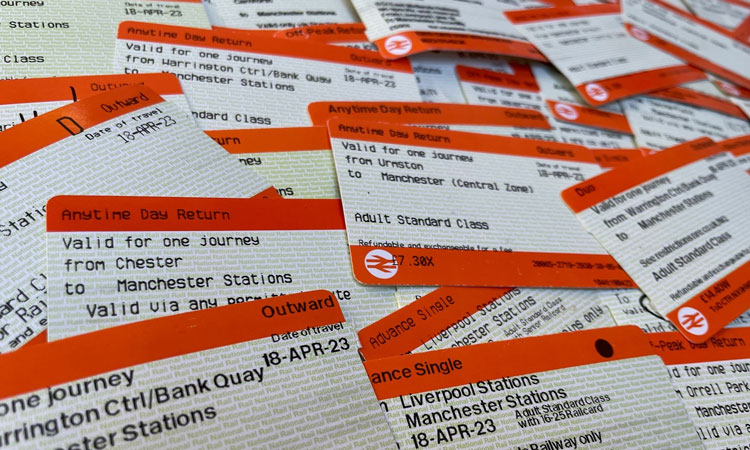Which? report on ticketing unveils higher cost for offline passengers
Posted: 19 January 2024 | Emily Budgen | No comments yet
The consumer-focused brand Which? has published a report, detailing how passengers pay higher prices when buying tickets at the station.


A new report by consumer-focused brand Which? has detailed that buying tickets at station machines costs more than they would online.
Passengers buying tickets for train journeys might find a better deal by using an online platform, consumer-focused brand Which? has found. This new report has detailed how many customers are unable to find the best ticket deal at a station when using a machine for purchase. It comes after the government’s announcement last year to keep ticket offices open, after calls over accessibility. Currently, only one in six stations, out of 1766 government run stations, has a full-time ticket office.
The report found that by purchasing a same-day rail ticket at a station, customers were paying on average 50% more at stations.
Anthony Smith, Chair of the Independent Rail Retailers (IRR) responded to the report:
“We welcome the Which? report, which highlights how independent online retailers have become the real consumer champions when it comes to buying rail tickets.
“From split ticketing to barcodes on your phone, buying online puts the passenger back in control of their journey. It’s simpler, quicker and cheaper – and you don’t need to queue!
“But there is so much more opportunity: by working in partnership with Government and the train operators, we can not only help even more people get the best price for their journey, but also generate millions of pounds of extra revenue every day that can be reinvested straight back into our railways.”
Mark Plowright, Director at Virgin Trains Ticketing issued this comment:
“It’s important to note that the Which? report only compared against Trainline and didn’t look at the value offered by other online retailers through points, rewards, and other perks, so the value gap is actually much greater. Rail retail is a growing market, and competition between apps like Virgin Trains Ticketing is driving great value for customers who have a smartphone, but all rail passengers deserve to get the best value for their journey wherever they choose to buy their tickets.”
Which?’s findings are not an isolated analysis, however. In November 2023, SilverRail published a report detailing the confusion over ticket purchasing experienced by the UK population. According to the report, nearly half of the UK population buy their tickets at the station, while the other half would use an online purchasing platform, such as Trainline. Official statistics point to this being one third of all rail tickets sold, roughly £2.8bn in current revenue. This gap amplifies with the increasing age of the passenger, climbing from 36% among 18–24-year-olds to 63% for those aged 65 and over.
Complexity seemed to be the key issue in the SilverRail report: 20% of British people said that they would be unable to find the cheapest ticket for their journey. 58% of passengers also believed that there were too many ticket options, with the number increasing to 71% amongst British people aged 65+.
SilverRail’s Vice-President David Pitt issued this comment on the report in November 2023:
“Despite the UK’s vision for an all-inclusive rail system and even with the recent U-turn to close ticket offices, we’re still a long way from ensuring all people – no matter their age, background, or disability status – can navigate our rail network confidently. While the shift to digital ticketing is welcomed by most passengers, it’s imperative that we don’t sideline the most vulnerable in society.
“There are a number of fantastic initiatives coming through to help passengers that are either unwilling or unable to engage fully with ticket purchases on their mobile phone. For a while, we, at SilverRail, have recognised that one size does not fit all. Simple solutions like providing smart kiosks at stations or enabling train tickets to be bought from convenience stores on UK high streets, both with the same access to cheaper fares that mobile users expect, could make all the difference to travellers.
“At the end of the day, the passenger should not be penalised in either cost or experience however they wish to buy their ticket.”
UK customers are currently able to buy their tickets direct from operators, online, as well as through companies such as Trainline, or through stations’ ticket offices and machines.
More Like This
Ford & Stanley Director predicts 2024 trends for the rail industry
California High-Speed Rail Authority awarded $3.073 billion
A year in review: Office of Rail and Road’s annual report published
Related topics
Funding & Finance, Operational Performance, Passenger Experience/Satisfaction, Passengers With Reduced Mobility (PRM), Smart/Contactless Ticketing, Station Developments
Related organisations
Independent Rail Retailers, SilverRail, Trainline, Virgin Trains Ticketing, Which?








